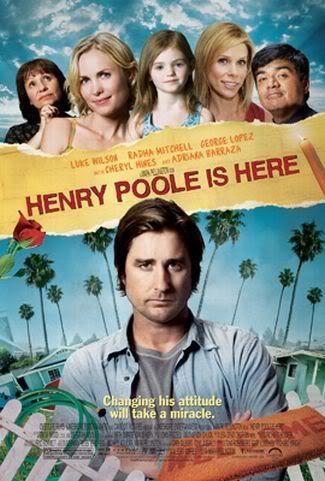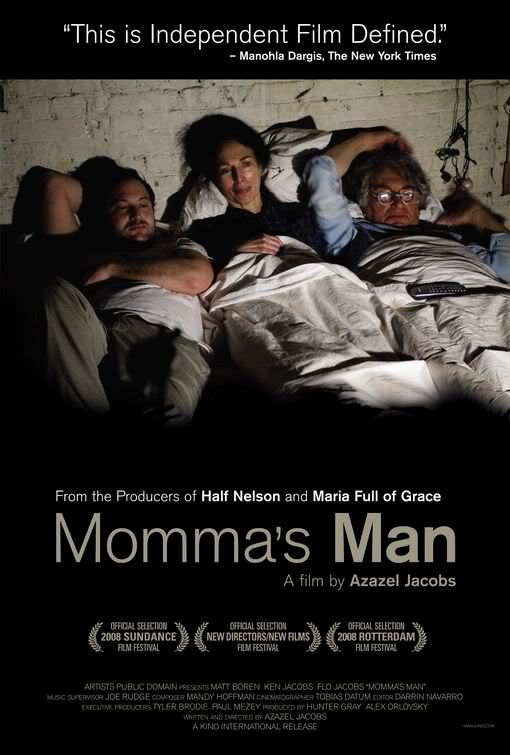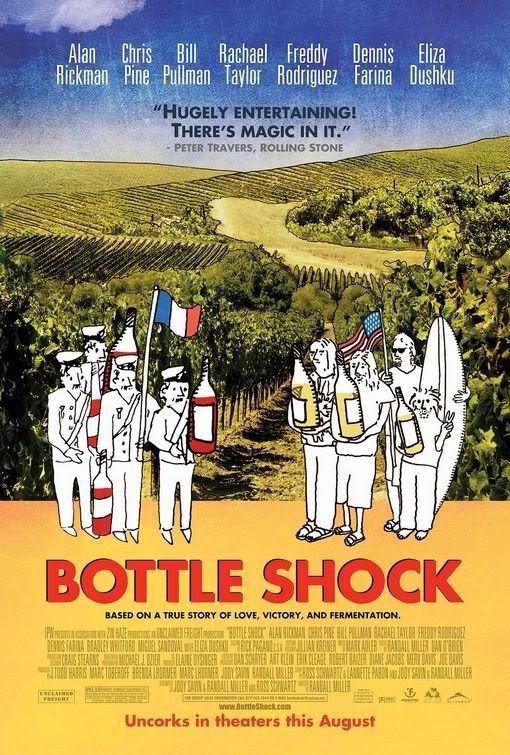
In order to get something out of "Henry Poole Is Here," one would be forced to have a certain suspension of belief. After all, this is a film all about the power to belief-to belief in faith, miracles, and even God. Unlike other "faith" based films-such as last year's awful "The Ultimate Gift"-"Henry Poole Is Here" does not try to jam down a message of God down the audiences throat, which makes it possible for people of all different beliefs to be touched by it. That choice by the screenwriter, as well as the very humanistic performances by the entire cast, made this film extremely touching, and a very rewarding experience for me.
The first time we meet Henry Poole (Luke Wilson) he is clearly in bad shape. Unshaven and sporting worn out and untucked button down shirts, Henry buys a rather beat up house in the neighborhood he grew up in, and decides to spend his days wallowing and drinking bottle after bottle of vodka. Henry was recently informed by his doctor that he has a terminal illness, and all he wants is to be left alone. However, he is instantly bothered by his neighbor Esperanza (Adriana Barraza), who believes that the face of God is on Henry's wall. Henry just thinks that it is a watermark left over by a bad stucco job. However Esperanza spreads the news and soon enough there is a line of people gathered outside of Henry's house trying to get a look at the face of Christ. Meanwhile, Henry gets involved with Dawn (Radha Mitchell), the single mother next door whose daughter Millie is mostly silent. Its with Dawn's help that Henry is able to believe in life again.
RIght off the bat, Luke Wilson is excellent here. After a large bunch of silly and lazy roles like in "My Super Ex-Girlfriend," "Mini's First Time," and "You Kill Me," he is finally given a real depth filled character to sink his teeth into. Clearly depressed, Wilson is able to do quite a bit with his appearance, and his eyes are so filled with hurt, pain, and fear throughout. He is aided by Adriana Barraza, who is given a nice balance of emotion and comedy much different from her riveting role in "Babel." Radha Mitchell's performance as Dawn was also quite satisfying, despite the fact that her love story subject with Henry was an easy route for the screenplay to go.
I am also somewhat crazy about several of director Mark Pellington's choices behind the camera, especially in the films first half. Pellington does something with sound and atmosphere in these opening scenes that I have a hard time explaining. I felt the same way about moments in Ridley Scott's masterpiece "Matchstick Men," where there is some trance like moments involving background sounds-such as a train whistle, or a wind chime. They really come together to form a look into Henry's very damaged and angry mind. The music score by John Frizzell is quite wonderful to, with a very nice mixture of quirky and beautiful, reminding me a little bit of something Thomas Newman would do.
However some choices in the second half of the film I must admit I was not crazy about. I suppose it was the love story between Henry and Dawn which, while sweet, just seemed a bit obvious and not the way I wanted the story to go. It leads to a somewhat over long movie, where Pellington has several music video type montages with Henry running, or Henry watching the sunset, or Henry playing with Millie, which padded the running time. However Wilson is able to stand firm and in character, and all of the actors really continued to bring me back to reality.
As I said, it is important to suspend belief in the movie, which ends up being quite easy as all these actors make it very easy to believe what is happening here. The screenplay really handles belief and faith in a very gentle way, never having the viewer feel superior to those that fall for the face in Henry's wall. And I found it very clever having the image on the wall seem stronger and stronger as the film moved forward-during its first appearance it barely resembles a face compared to what it looks like in the films climatic moments. This a film that does have the power to move, and I think it can move even the strictest atheist. Simply because it does not focus on a belief in God, but just a belief in life and love, and in not giving up whenever things seem rough. It's quite uplifting in a month of somewhat cynical and mean spirited films.
*** of ****



